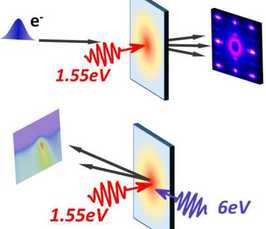A time domain perspective on electron-boson coupling in superconducting materials
MPSD Seminar
- Datum: 07.12.2018
- Uhrzeit: 10:30 - 12:00
- Vortragende(r): Uwe Bovensiepen
- University of Duisburg-Essen, Faculty of Physics
- Ort: CFEL (Bldg. 99)
- Raum: Seminar Room IV, O1.111
- Gastgeber: Angel Rubio

It is therefore desired to identify well defined bosonic or electronic signatures in time-resolved spectroscopy. In this talk results of femtosecond time- and angle-resolved photoemission on cuprate and Fe-based superconductors will be presented. Experimentally observed, well defined boson signatures [4,5], which originate from restrictions in the relaxation phase space [6] will be discussed. We show that coupling to specific bosonic excitations, which were identified by ultrafast electron diffraction for the case of Bi-2212 to consist of in-plane lattice vibration, [7] inhibits thermalization of the excited electron distribution. Such microscopic insight provides opportunities to analyze the electron-boson coupling directly, without the assumption of a thermalized electron distribution.
[1] Brorson et al., Phys. Rev. Lett. 64, 2172 (1990).
[2] Perfetti et al., Phys. Rev. Lett. 99, 197001 (2007).
[3] Baranov and Kabanov, Phys. Rev. B 89, 125102 (2014).
[4] Rameau et al., Nature Commun. 7, 13761 (2016).
[5] Avigo et al., New J. Phys. 18, 093028 (2016).
[6] Kemper et al., Ann. Phys. 529, 1600235 (2017).
[7] Konstantinova et al., Sci. Adv. 4, eaap7427 (2018).